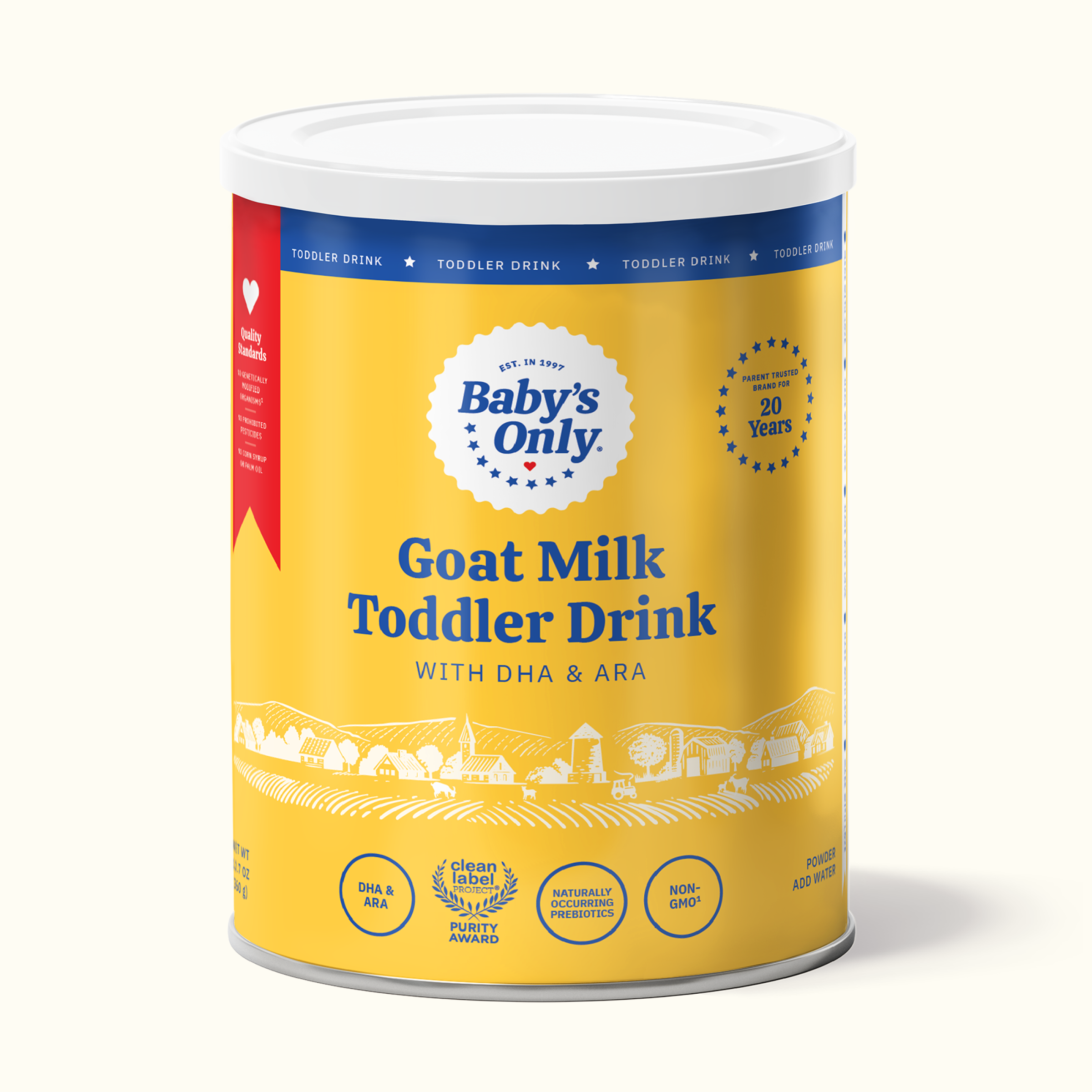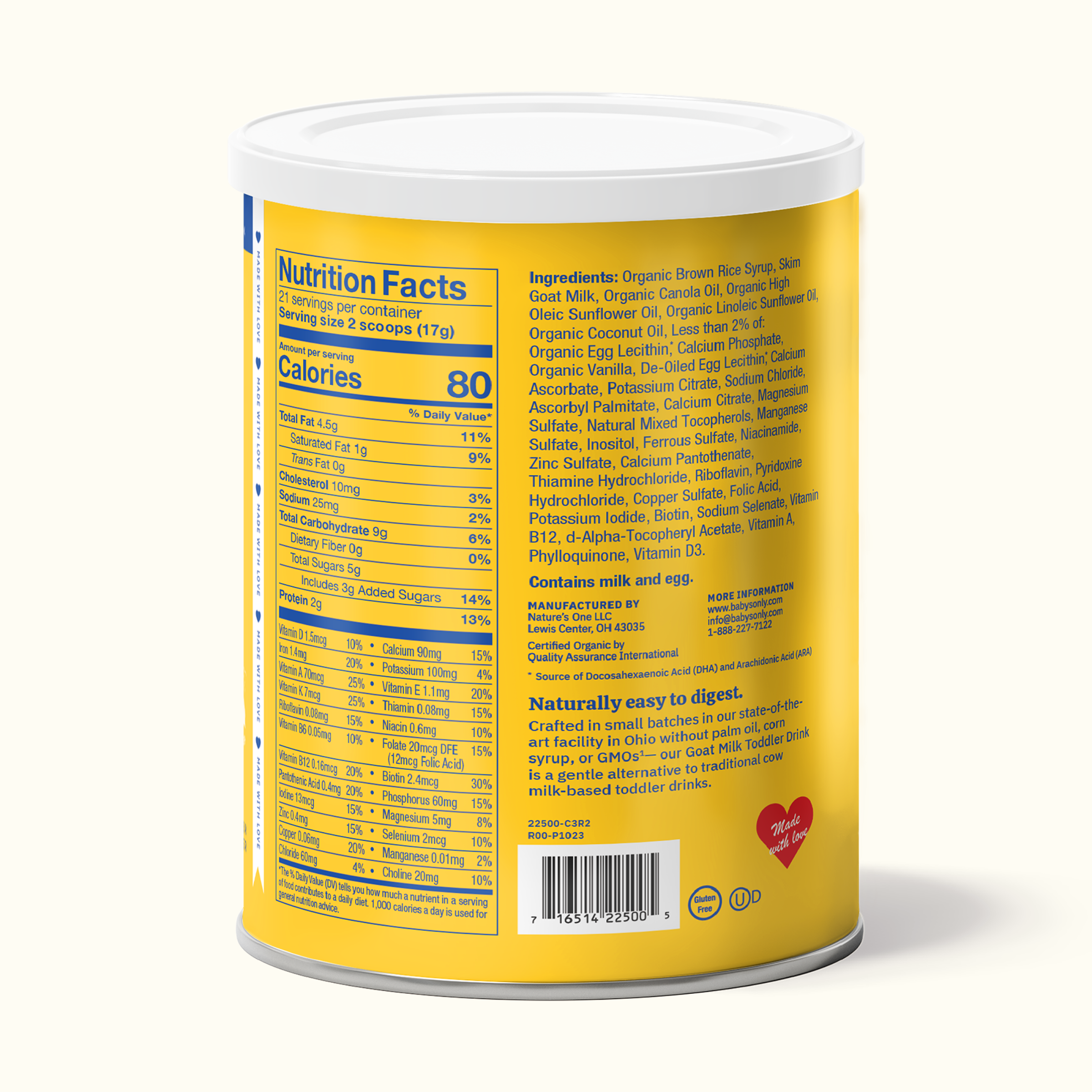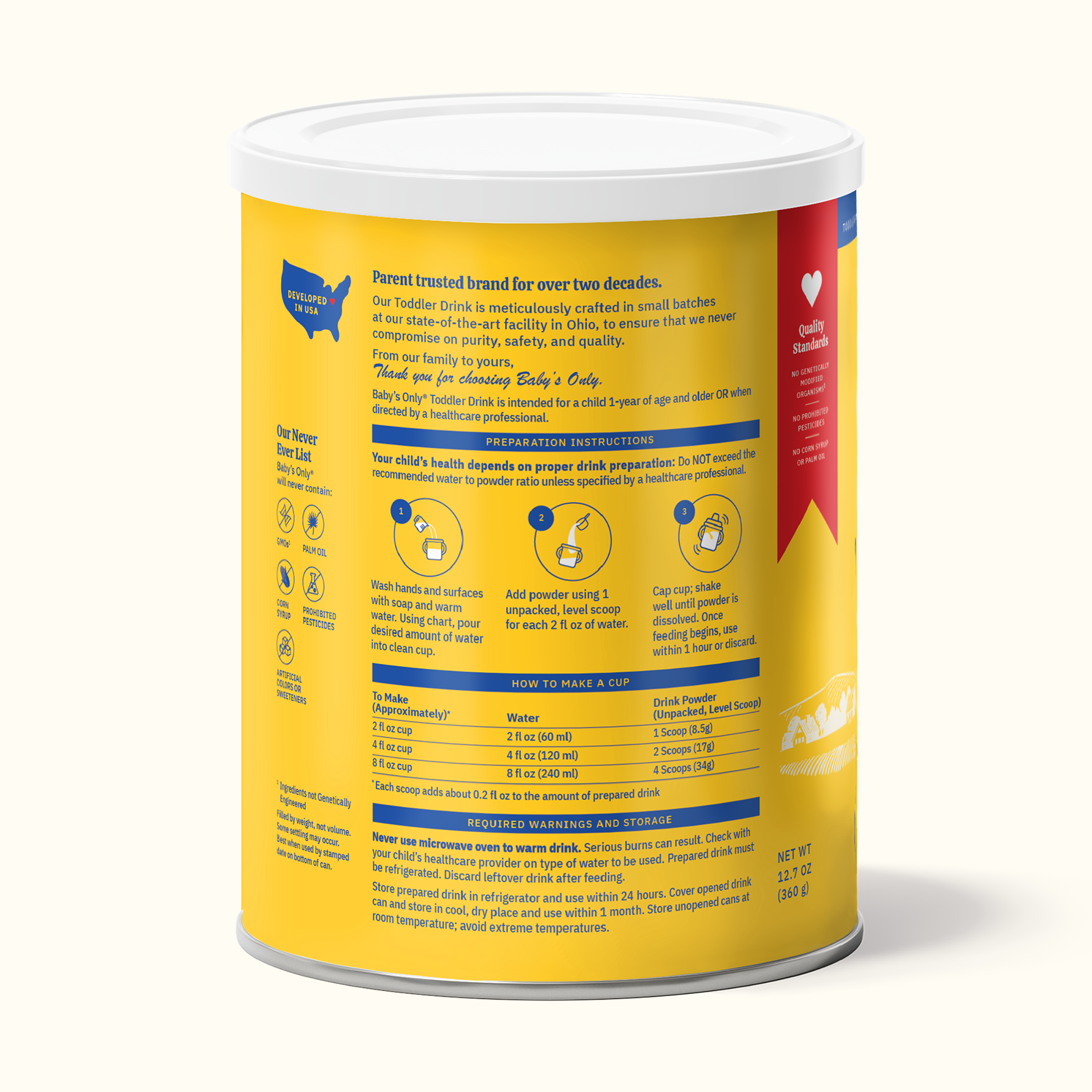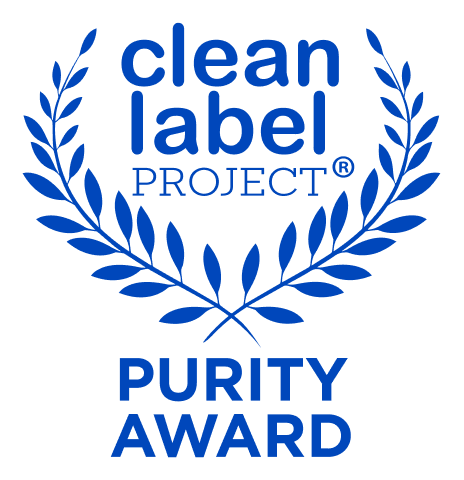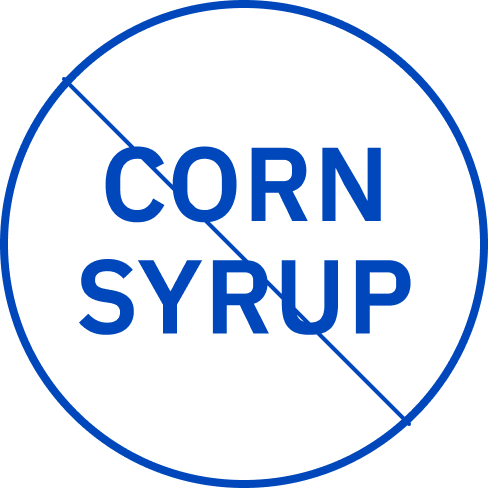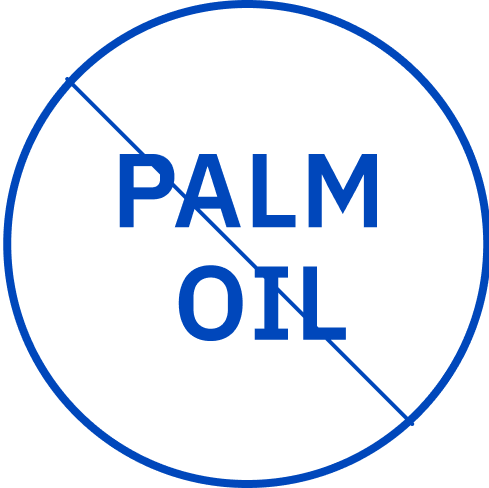Organic Brown Rice Syrup, Skim Goat Milk, Organic Canola Oil, Organic High Oleic Sunflower Oil, Organic Linoleic Sunflower Oil, Organic Coconut Oil, Less than 2% of Organic Egg Lecithin,* Calcium Phosphate, Organic Vanilla, De-Oiled Egg Lecithin*, Calcium Ascorbate, Potassium Citrate, Sodium Chloride, Ascorbyl Palmitate, Calcium Citrate, Magnesium Sulfate, Natural Mixed Tocopherols, Manganese Sulfate, Inositol, Ferrous Sulfate, Niacinamide, Zinc Sulfate, Calcium Pantothenate, Thiamine Hydrochloride, Riboflavin, Pyridoxine Hydrochloride, Copper Sulfate, Folic Acid, Potassium Iodide, Biotin, Sodium Selenate, Vitamin B12, d-Alpha-Tocopheryl Acetate, Vitamin A, Phylloquinone, Vitamin D3.
Contains milk and egg.
*Source of Docosahexaenoic Acid (DHA) and Arachidonic Acid (ARA)
